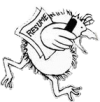Blog
Have you found yourself in an interview where you think you have answered all the questions well and come out feeling confident that you have nailed the job interview? Then discovered that you weren't successful and don't really know why or how to improve?
This is a common issue for many of my clients.
It is important to take the initiative to find out why. Some interviewers will only say that they found someone more suitable or with more experience. Not very helpful. Others will actually give you some valuable feedback such as:
- Didn't give enough information
- Didn't demonstrate your points or give examples
- Didn't answer the question fully
- Your answers needed structure or
- You would benefit from interview training
This gives you the opportunity to work on specific areas for improvement.
The best point to start is to consider how do you learn and retain new information.
Do you learn by:
- Seeing the information and making detailed notes or using mind maps etc ?
- Listening to talks or lectures and jotting points?
- Being shown and then doing it ?
Most people learn through a combination of the above, however for some people who work in occupations which require more visual and practical skills for example - architecture, engineering, medical, areas of IT, trades etc people tend to learn best by seeing and doing the job. While you are capable of doing the job, describing what and how you do it is more difficult as there are often no visual cues at an interview.
If this sounds like you, here are a few tips to help you prepare for job interviews, Many of my clients have learnt to approach their interview preparation in a different way The following are some successful approaches.
- Start by reading the job description and imagine you are doing the job, then either using the STAR system, mind map or diagram put in the key actions you would do to complete the key tasks required in the job.
- Then again using the same technique include your work experience examples against each required task.
- The purpose is to give you a clear visual representation of the points to include in your answer when you are asked a question about a particular topic.
- The more visual and point form it is, the easier it will be for you to remember and answer the question.
For example if you are asked a question about your communication skills a common question at interviews.
The key points to include will be;
- Define what you mean by communication
- What it includes - the following are suggestions choose your own or pick the ones relevant for you written, oral, non verbal, pictures diagrams etc and how you use them.
- Then provide an example of using your communication skills to get the result you require.
- With each key area you are likely to be asked a question follow the above process.
For people whose primary learning style is through seeing and/or doing this technique has proved to be the most effective.
Initially it will be time consuming to prepare, however in the longer term as you tailor the approach to your skill set and job requirements, it will make it easier to understand complex and multi-layered questions and provide well considered on topic answers.
Having trained many clients who are primarily visual/practical learners I developed this practical approach to assist clients achieving success at interviews.
For more information please contact Deborah Barit email deborah@impressiveinterviews.com.au office (02) 9331 1853, mobile 0412 007 682
© 2024 Impressive Interviews. All Rights Reserved.

